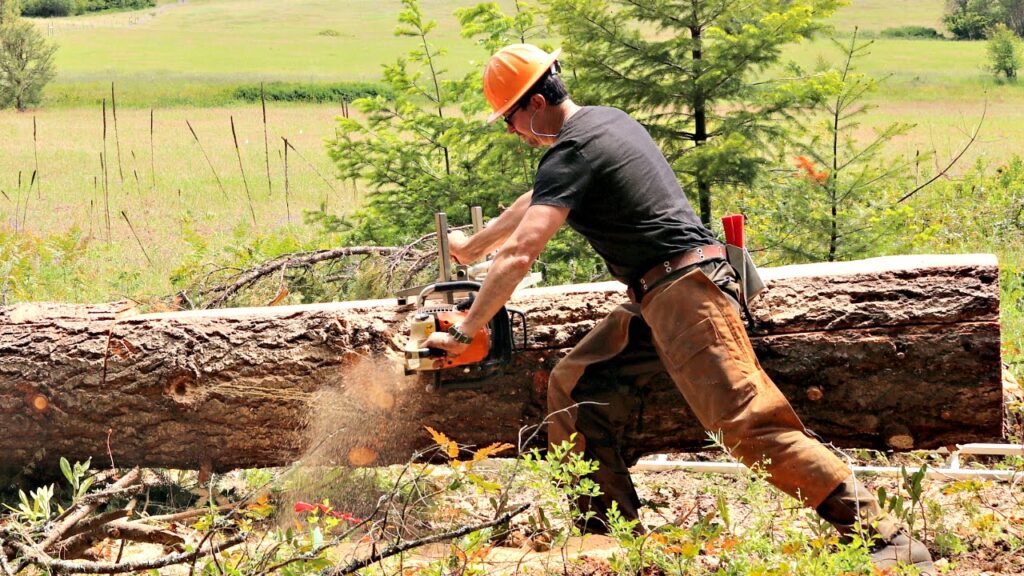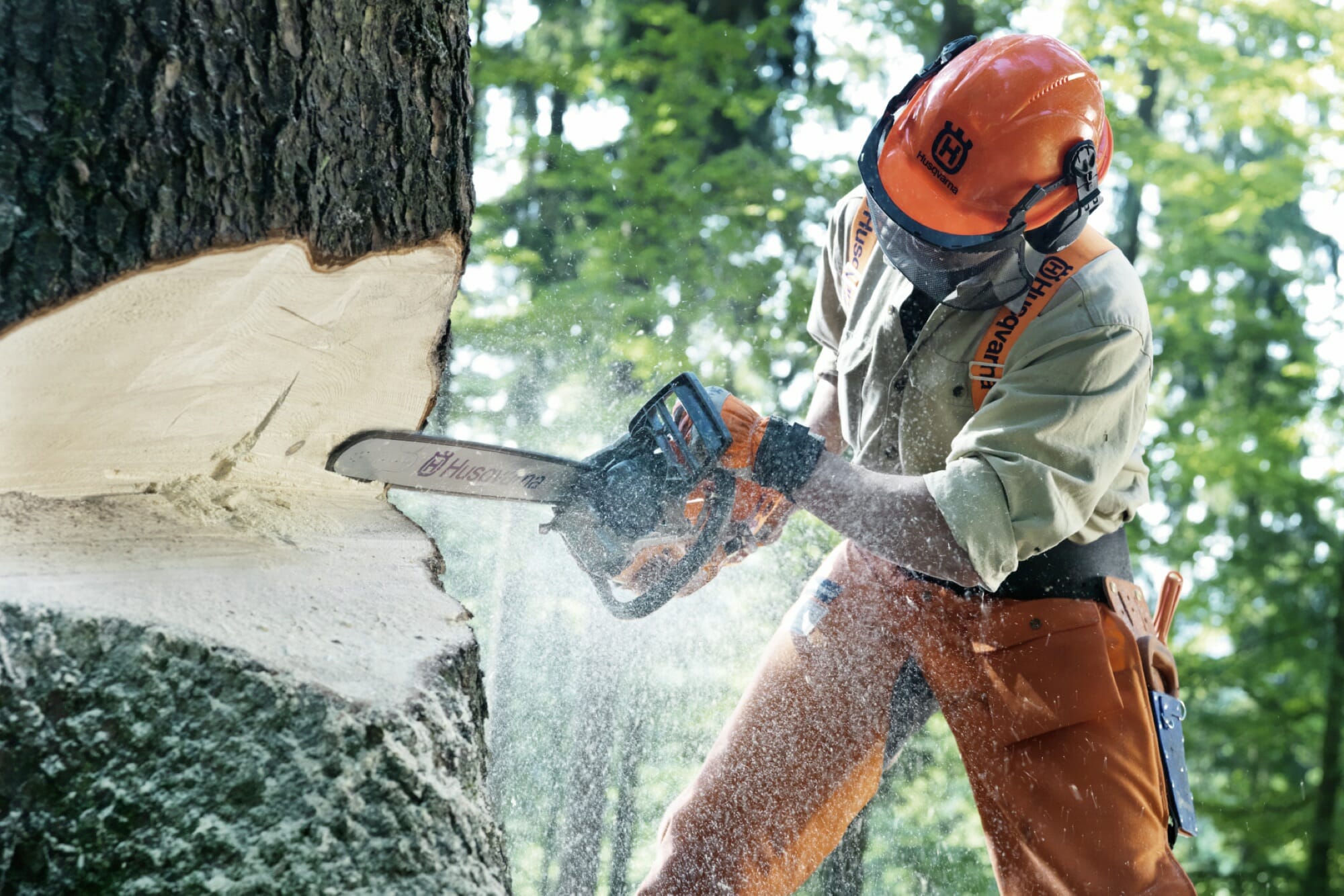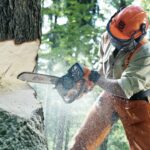Understanding the bonner count law on using chainsaws is crucial for residents and professionals operating in Bonner County, Idaho. Chainsaws are indispensable tools for many tasks, from maintaining properties to engaging in the timber industry that thrives in this region. However, to ensure safety, environmental protection, and community harmony, specific laws and regulations govern their use.
Overview of Chainsaw Use in Bonner County
Bonner County, nestled in the northern part of Idaho, is renowned for its dense forests and vibrant timber industry. Chainsaws are commonly used for logging, firewood collection, land clearing, and property maintenance. While these activities are routine, it’s essential to be aware of the local laws that regulate chainsaw operation to prevent legal issues and promote safety.
Safety Regulations and Requirements
Safety cannot be overstated when it comes to chainsaw operation. In Bonner County, while there isn’t a specific county ordinance detailing chainsaw safety protocols, operators are expected to follow Idaho state laws and Occupational Safety and Health Administration (OSHA) regulations. These guidelines are designed to minimize the risk of injury, which is particularly important given the potential hazards associated with chainsaw use.
For instance, wearing personal protective equipment (PPE) is not just recommended—it’s essential. Helmets protect against falling debris, while eye protection shields against wood chips and dust. Hearing protection is crucial because prolonged exposure to the loud noise of a chainsaw can lead to hearing loss. Additionally, cut-resistant gloves and chaps can prevent severe injuries in the event of accidental contact with the chainsaw blade.
Moreover, proper training is highly encouraged. Without adequate training, even experienced operators can make mistakes that lead to accidents. In Bonner County, several organizations offer chainsaw safety courses. For example, the University of Idaho Extension provides workshops that cover maintenance, operation techniques, and safety practices.
Environmental Considerations and Permits
Environmental laws play a significant role in regulating chainsaw use in Bonner County. If you’re planning to harvest timber or clear land, it’s important to understand the legal requirements. The Idaho Forest Practices Act mandates that any commercial timber harvesting must adhere to specific guidelines to protect water quality, wildlife habitats, and soil stability.
Before commencing any large-scale tree removal, you may need to submit a Notification of Forest Practice to the Idaho Department of Lands. This notification helps the department ensure that your activities comply with environmental regulations.
Furthermore, the Endangered Species Act may affect chainsaw operations in areas where protected species are present. For example, if your property is a habitat for species like the grizzly bear or the woodland caribou, additional restrictions may apply. It’s advisable to consult with environmental experts or the U.S. Fish and Wildlife Service to ensure compliance.
Noise Ordinances and Time Restrictions
Living in a community means being considerate of your neighbors. Bonner County’s noise ordinances are in place to maintain the peace and quiet that residents value. While operating a chainsaw is necessary for many tasks, it’s important to do so during acceptable hours.
Typically, the county prohibits loud noises between 10 PM and 7 AM on weekdays, with possibly extended restrictions on weekends. Violating these ordinances can result in complaints from neighbors and potential fines. To avoid issues, plan your chainsaw activities during daytime hours and consider informing your neighbors if you expect prolonged use.
Fire Prevention and Restrictions During Fire Season
Wildfires pose a significant threat in Idaho, and chainsaws can inadvertently ignite fires if not used carefully. During the fire season, which usually spans from late spring to early fall, Bonner County may impose additional restrictions on chainsaw use.
Operators are often required to carry fire suppression tools, such as a fire extinguisher or a shovel and bucket. Spark arrestors—devices that prevent the emission of flammable debris from exhaust systems—are mandatory on chainsaws during this period.
In extreme conditions, the county may issue a Red Flag Warning, indicating a high risk of wildfire. During such times, the use of chainsaws may be prohibited altogether. Staying informed about the current fire danger level is crucial. The Idaho Fire Information website provides regular updates on fire restrictions.
Penalties for Non-Compliance
Non-compliance with Bonner County laws on chainsaw use can have serious consequences. Penalties vary depending on the nature and severity of the violation. For instance, operating a chainsaw during a fire ban could result in hefty fines and liability for any resulting damages.
Similarly, illegal timber harvesting without the necessary permits can lead to legal action, including fines and possible restitution payments. Violating noise ordinances may result in citations and fines, not to mention strained relationships with neighbors.
To illustrate, consider a case where an individual ignored fire season restrictions and operated a chainsaw without a spark arrestor. This negligence led to a wildfire that damaged several acres of forestland. The individual was held responsible for the suppression costs and faced significant fines.
Real-World Examples and Case Studies
A real-world example underscores the importance of adhering to chainsaw laws. In 2020, a Bonner County resident was fined for conducting unpermitted logging activities on his property. The landowner had removed a large number of trees without notifying the Idaho Department of Lands or obtaining the necessary permits. As a result, he faced legal action and was required to pay fines and reforest the affected area.
Another case involved a contractor who was operating a chainsaw during a period of high fire danger without proper fire suppression equipment. His actions sparked a small fire, which was quickly contained but resulted in fines and a temporary suspension of his operating license.

Key Takeaways
- Safety First: Always prioritize safety by wearing appropriate PPE and obtaining proper training.
- Environmental Compliance: Ensure that your chainsaw activities comply with environmental laws by obtaining necessary permits and protecting wildlife habitats.
- Respect Noise Ordinances: Be considerate of your community by adhering to noise restrictions and informing neighbors of any prolonged chainsaw use.
- Fire Safety: Follow all fire prevention regulations, especially during fire season, to prevent wildfires.
- Understand Penalties: Be aware that non-compliance can lead to significant legal and financial consequences.
FAQs
A: Generally, you don’t need a permit for minimal tree removal on your property. However, if you’re planning extensive clearing or live near protected areas, you should consult the Idaho Department of Lands.
A: Operators should wear helmets, eye and ear protection, gloves, and cut-resistant clothing. While not always legally required, it’s strongly recommended for safety.
A: Yes, typically, chainsaw operation is restricted during nighttime hours, usually between 10 PM and 7 AM. Check local ordinances for exact times.
A: Visit the Idaho Fire Information website or contact the Bonner County fire department for the most current fire restriction information.
A: Penalties can include fines, legal action, or both, depending on the violation’s severity.
A: Chainsaw use in public parks or lands is generally restricted. You may need special permits or permissions from the relevant authorities, such as the U.S. Forest Service or Idaho Department of Parks and Recreation.
A: While there may not be specific county age restrictions, OSHA regulations prohibit minors under the age of 18 from operating chainsaws in non-agricultural employment due to safety risks.
A: If you suspect illegal chainsaw use, such as unauthorized logging or activities during fire bans, you can report it to the Bonner County Sheriff’s Office or the Idaho Department of Lands.
Additional Resources
- Idaho Forest Owners Association
- University of Idaho Extension Forestry
- U.S. Forest Service – Idaho Panhandle National Forests
Conclusion
Understanding and complying with the bonner count law on using chainsaws is essential for safety and legal compliance. By following the local regulations, you can ensure that your chainsaw activities are safe, lawful, and considerate of the community and environment. Always stay updated on local laws and regulations, as they can change based on the season and evolving county ordinances.
Read More: Understanding the Law: Distance from Property Window to Trespass in Connecticut










